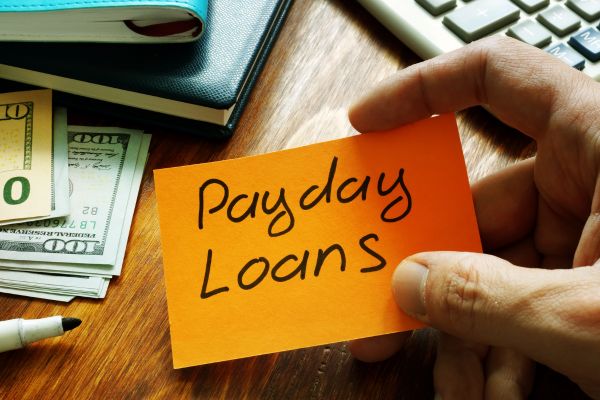Payday loans sound tempting at first glance. Quick cash, no lengthy paperwork, and the money is usually in your account within hours. But here’s the thing—what looks like a lifesaver today can easily turn into a financial storm tomorrow. The risks of payday loans are often hidden beneath flashy ads promising “instant approval” and “no credit check.” Let’s pull back the curtain and talk about the real dangers that come with them.
Why Payday Loans Seem Attractive
When someone is short on rent or has an unexpected medical bill, payday loans feel like an easy fix. You don’t need a high credit score, you don’t wait weeks for approval, and the lender doesn’t grill you with endless questions. In fact, that convenience is exactly why so many people fall into the trap. But here’s where it gets tricky: payday loans aren’t just quick, they’re expensive—sometimes outrageously so.
The Hidden Costs Behind Payday Loans
On the surface, a payday loan might not look too scary. Borrow $300 and pay back $345 in two weeks—doesn’t sound too bad, right? But let’s be real. That extra $45 is basically interest on steroids. The annual percentage rate (APR) on payday loans often skyrockets to 300% or even higher. Compare that to a standard credit card APR, which usually sits between 15% and 25%. The difference is huge.
What’s worse is that many borrowers can’t pay the loan back in full on their next paycheck. That’s when rollover fees come in. Suddenly, that $45 turns into another $60 or $80, and before you know it, you’ve paid more in fees than you originally borrowed.
The Debt Cycle Trap
One of the biggest risks of payday loans is the cycle they create. Here’s how it usually plays out: you borrow money, payday comes, and instead of paying off the loan, you roll it over. Then another payday comes, and the same thing happens again. Each rollover adds more fees and more stress.
It’s not uncommon for people to take out a second loan just to pay off the first one. That’s when things spiral. What started as a $300 emergency loan can balloon into thousands of dollars in debt, dragging along months—or even years—of financial struggle.
Impact on Credit and Finances
Here’s the kicker: payday loans don’t typically help your credit. Unlike traditional loans, most payday lenders don’t report on-time payments to credit bureaus. But if you default? Oh, they’ll definitely report that. Not paying back can tank your credit score, making it even harder to qualify for safer forms of borrowing later on.
On top of that, lenders often have direct access to your bank account. If they withdraw money and it bounces, you’re hit with overdraft fees from your bank. It’s like being charged twice for the same misstep—first by the lender, then by your own bank.
Emotional and Mental Stress
Let’s not overlook the emotional side. The risks of payday loans aren’t just financial; they take a toll on your peace of mind. Constant calls from lenders, fear of your account being emptied, and the stress of owing more than you can handle—it adds up. People have described it as living in a loop of anxiety, where payday stops being exciting and turns into a day of dread.
Limited Regulation and Shady Practices
While some states in the U.S. have strict rules on payday lending, others are much looser. This means lenders often exploit loopholes, offering sky-high interest rates legally. There are even online payday lenders that operate outside U.S. regulations, making it nearly impossible for borrowers to get protection if something goes wrong.
And let’s be real—some lenders don’t play fair. Hidden fees, misleading terms, or aggressive collection tactics are not uncommon. Once you sign that contract, you’re often locked into terms that heavily favor the lender, not you.
Alternatives to Payday Loans
So, what do you do when money’s tight and you’re tempted by that “quick cash” ad? Here’s where thinking outside the payday loan box helps. Credit unions often offer small-dollar loans at way lower interest rates. Some employers provide paycheck advances with no fees attached. Even talking to your utility company about payment extensions is better than getting trapped in payday debt.
Another option is building a small emergency fund, even if it’s just $20 or $30 set aside each paycheck. It sounds small, but over time, it adds up. That stash can become a buffer that keeps you from needing a payday loan in the first place.
The Real Cost of Convenience
At the end of the day, payday loans sell convenience. They’re marketed as the “fast” solution, the “no hassle” way to deal with emergencies. But convenience comes at a cost—and with payday loans, that cost is often your long-term financial stability. The short-term relief can quickly snowball into months of stress, mounting fees, and a hole that’s hard to climb out of.
Final Thoughts
The risks of payday loans are very real. They may look like a quick answer to an immediate problem, but in most cases, they create more problems than they solve. From insane interest rates and endless fees to the emotional burden of debt, the downsides far outweigh the benefits.
If you’ve been considering a payday loan, take a step back. Ask yourself: is this going to solve my problem or just delay it? Because the truth is, payday loans are rarely a fix—they’re more like putting a band-aid on a wound that really needs stitches. Protect your financial health by exploring alternatives, asking for help, or even tightening your budget temporarily. It might not be easy, but it’s a lot better than being stuck in the payday loan trap.
